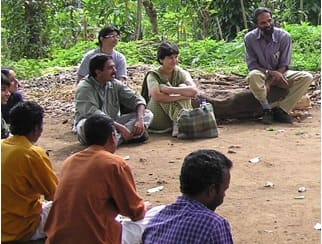
Collective responsibilities
Collective responsibilities are essential to characterize ICCAs—territories of life. The ability and willingness of a community to uphold its collective responsibilities towards its territory generate the very relationship that defines an ICCA—territory of life. Governance and management of land, water, air, biodiversity and all other gifts of nature within a territory of life are guided by the sense of common responsibility that the community shares, transmits to future generations, and reflects in its institutions and cultural, social and spiritual norms.
Collective responsibilities prompt the community to maintain its practices that are beneficial for nature as well as for its own livelihoods and wellbeing and ground their request for appropriate recognition and support of their role as custodians. The perpetuation of collective responsibilities highlights the relevance of ICCAs—territories of life for conservation, while offering a radical alternative to those approaches that are based on dispossession, and the consequent removal of responsibility of local communities. Reserving conservation action to the state (government, protected area agencies), holders of concessions, or private landowners alone is surely a waste of opportunities and capacities (see #Sustainable self-determination)
The ICCA Consortium aims at promoting the conservation of nature while nurturing the livelihoods and wellbeing of indigenous peoples and local communities through their sustainable self-determination and full respect of their collective rights and responsibilities.
Key references: Corntassel, 2008; Corntassel, 2012; Corntassel J. and C. Bryce. 2012.